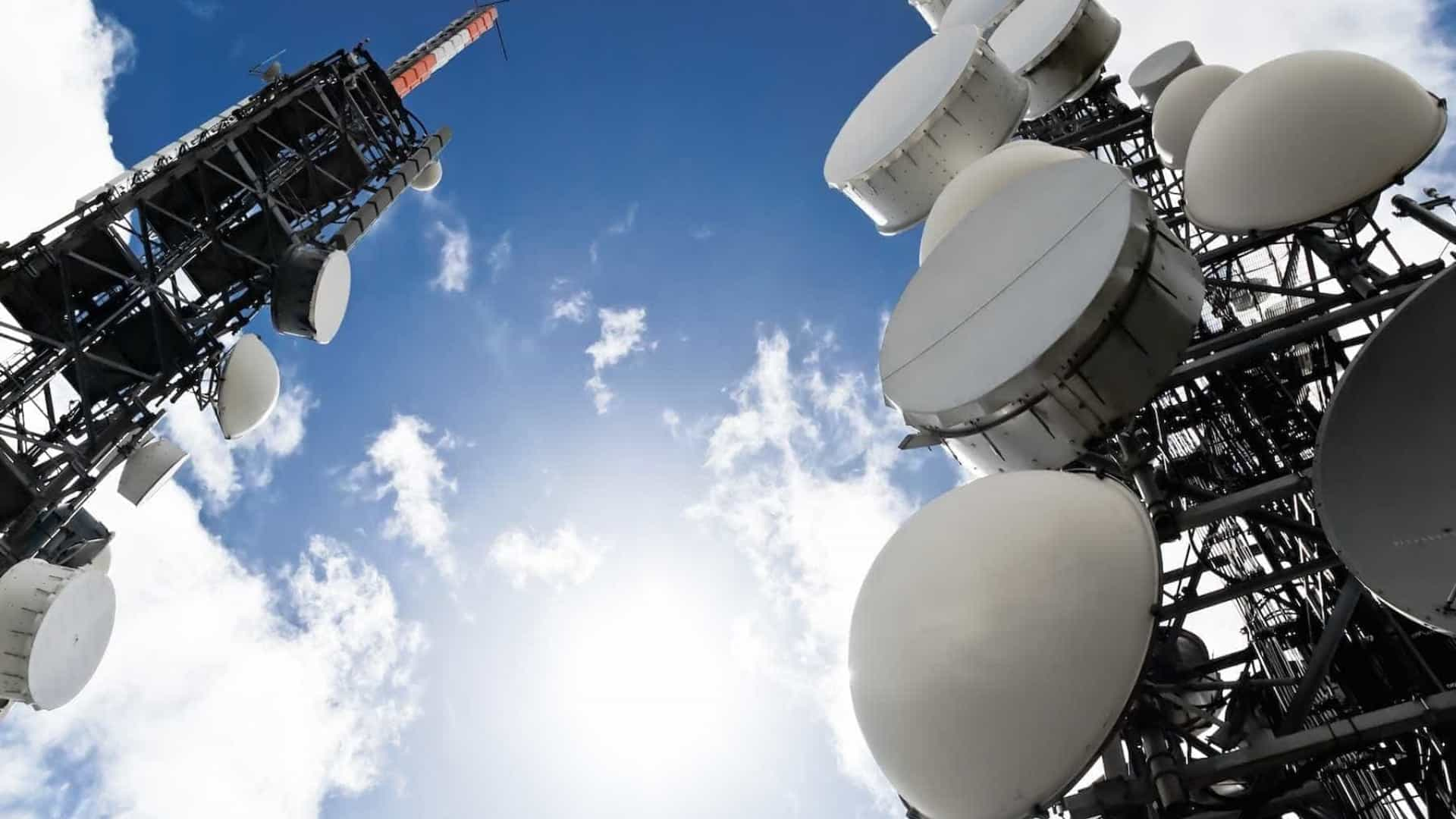
Topics related to the implementation of 5G in Brazil and the telecommunications company HUAWEI are strategic highlights for the coming years
The Brazilian telecommunications sector requires more regulatory flexibility, legal certainty and a reduction in the tax burden to support investments in the country. While not new, these demands have become more urgent with 5G on the way, as it will require more resources and infrastructure than previous technologies. Growing internet usage as a result of the pandemic is another factor.
“We collect more than 65 billion reais (US$12,3 billion) in taxes and contributions annually. Since 2001, only 8% of the resources of telecom funds have been invested in telecommunications”, said Vivien Suruagy, president of feninfra , national association of telecommunications infrastructure and maintenance companies, during the summit of the Telebrasil Panel .
“Meanwhile, Brazil leads the world in sector taxation and, with a tax burden of 47%, has almost twice as much telecommunications taxes and fees as the runner-up”, he added.
According to Suruagy, the sector's taxes increased 224% in 20 years, while revenue increased 123% in the same period.
About the tax reform proposals in discussion in Congress, Suruagy said that it is necessary to simplify taxation, but avoid increasing indirect taxation. She supported the proposal currently in the House because it would be more comprehensive.
The executive also supported the congressional vote to override the president's veto. Jair Bolsonaro on the extension of the payroll tax exemption for another 17 sectors, including the ICT industry.
América Móvil's president for Brazil, José Felix, echoed the criticism. At the event, he said, “we are talking about digital transformation in a country where the consumer has the second highest tax burden in the world. The ceiling [digital transformation] is discussed without taking care of the fundamentals [regulation and taxes]. ”
Julio Semeghini, deputy minister of Communication, said that most of the tax burden comes from the ICMS, which is collected by the states, not the federal government.
In response to Felix, Semeghini explained how the government is trying to build the foundations: with the approval of a reformed general telecommunications law last year in Congress, which should make broadband investments more flexible for fixed-line concessionaires; and new rules for the Universalization Targets Plan (PGMU), which establishes targets for mobile coverage.
The government official also cited the decree-law on antennas recently issued by the president, which facilitates the installation of cellular antennas in cities; and the potential tax exemption for IoT devices.
“Yes, there is a lack of tax reform, but we are working on the bases”, said Semeghini.
Carlos da Costa, special secretary for productivity, employment and competitiveness at the economy ministry, said the government will present a new legal framework for startups to congress next week.
Da Costa also mentioned upcoming regulations aimed at accelerating innovations for industry 4.0, as well as the 5G auction (“always respecting our sovereignty”).
And he referred to a program that is being carried out in partnership with Sebrae's micro and small business service to train young people in technology. According to him, the goal is to reach 1 million companies by 2022.
But telecom players have more to say about the market.
DIGITIZATION AND INTERNET TV
“What has happened in recent months has led everyone to rethink business models, processes, etc. What used to be complicated, in the blink of an eye everyone did, like remote work, telemedicine, distance education,” said Felix from America Movil. he said.
The executive said that the Claro Brazil is preparing to launch in the coming weeks an “alternative” pay TV service for customers who do not have access to its subscription.
The measure comes after the telecommunications regulator Anatel determined that live linear channels over the internet not are a telecommunications service and are not subject to Pay TV rules.
“Claro is not a company focused on connection. We want to grow in the value chain. Solutions beyond connections is our main objective”, he said.
5G Implementation
Felix pointed out that although Claro already operates a 5G-type technology through the DSS system, which offers speeds close to that of fiber (250Mb / s), greater bandwidth capacity with more spectrum is required, making the auction of 5G frequency planned for the first half of the next crucial year.
The executive promoted 100 MHz as the minimum bandwidth necessary for large operators to have 5G networks with quality of service. He also said that the rules for the auction should be “isonomic”, with equal rules for large and small suppliers and with legal security.
For the auction, it is necessary to "suppress this lobby of the broadcasters for the migration of the Ku band due to the high cost that this represents".
Felix was referring to an option being studied to avoid interference between open satellite TV and 5G in the 3,5 GHz frequency. The band destined for 5G is currently occupied by broadcasting services.
According to Felix, the filters are cheaper (around BRL 500 million) and have proven to be enough to alleviate any problems, while the process of transferring satellite TV to other bands, which operators would have to partially finance, would cost around of BRL 3,5 billion.
“These are discussions in which a lot of time is wasted in the country without a clear and meaningless objective. The result is that you don't do what you have to do,” said Felix.
He also said that the terms of the bidding should deal with the risk of spectrum acquisition by "adventurers and / or speculators seeking to enter the spectrum acquisition and resale process", referring to the possibility of non-operators participating in the auction and even buy licenses.
In this sense, the mining company Vale asked the regulator Anatel this week for authorization to acquire spectrum frequencies to facilitate the installation of private telecommunications networks in its mines.
Consolidations
Regarding the competition for Oi's mobile assets, Claro's joint proposal with TIM and Telefônica Brasil would be the best option to help Oi out of the judicial recovery process, according to the executive.
Felix said that an acquisition by the other three operators would eliminate the risk of discontinuing Oi's mobile and fixed services. He also said that the proposal “preserves regulation by increasing competition”, avoiding the concentration of customers and frequencies in a single operator.
He again referred to "adventurers" who would be interested in the rival, such as telecom infrastructure company Highline . An ideal mobile market would support three major companies instead of four, referring to the US market as a model.
permanence of HUAWEI in Brazil
The president of the Huawei for Brazil, Sun Baocheng, said the company paid 1,4 billion reais in taxes last year.
Not to mention potential ban , Baocheng said that the company has been in the country for 22 years and employs more than 1.200 people directly, about 80% of them Brazilian.
“Huawei is in Brazil for Brazil. We look forward to working together with a shared responsibility.”
Baocheng said that the company operates in several sectors in Brazil, including agriculture, mining , automation and media.
He also praised the Norte Conectado government program to bring fiber to the Amazon region, saying the company is open to collaboration. Huawei is expanding its fiber network in the Amazon bringing broadband to 200.000 homes, he said.
Huawei also plans to train 30.000 students in Brazil in ICT in the coming years.
Carlos Roseiro, director of solutions at Huawei Brasil, said that 5G “is not everything”, but one more technology that helps in the digital transformation of companies and people.
“Fiber, AI, cloud are other technologies that, combined with 5G, will enable digital transformation and increase productivity and efficiency gains in the economy.”














Finally the Toyota Yaris Cross…
Work in Switzerland and earn…
Oceânica opens several vacancies…
Moto 0 from Honda that…
Great News for Rio…
Fiat rival??? Kkkkkkkkkk It can only be…
For Saveiro to start appearing in this regard,…
Good luck! Said the road
There's a good chance of leaving. Even during…
Toyota is Toyota. 4-cylinder engines…
I am interested in working in Ireland
I want to work in Switzerland, I have experience…
I'm a driver, I really wanted something like this